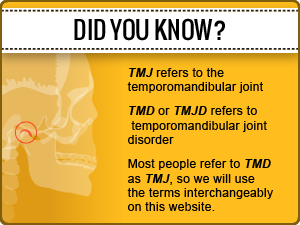A trip to the dentist can cause your TMJ problem to exacerbate, especially if it is a long visit or includes extraction of wisdom teeth. While trauma to TM Joints is often blamed on the dentist the real problem may be the extended wide opening of the jaw procedures require.
There are many reasons for the development of TMJ disorders. The treatment of dental disease, root canals, third molar extraction can be a precipitating event.
These problems are due to overstressing of the muscles and ultra-low frequency TENS used in Physiologic Dentistry is ideal for calming the system down.
The use of ULF-TENS may prevent far more serious future problems from developing.
J Oral Facial Pain Headache. 2016 Winter;30(1):34-41. doi: 10.11607/ofph.1557.
Prolonged Jaw Opening Promotes Nociception and Enhanced Cytokine Expression.
Hawkins JL, Durham PL.
Abstract
AIMS:
To test the hypothesis that prolonged jaw opening, as can occur during routine dental procedures, increases nociceptive sensitivity of the masseter muscle and increases cytokine expression.
METHODS:
Sprague-Dawley rats were used to investigate behavioral and cellular changes in response to prolonged jaw opening. A surgical retractor was placed around the maxillary and mandibular incisors, and the jaw was held at near maximal opening for 20 minutes. Head-withdrawal responses to mechanical stimuli applied to the facial skin overlying the left and right masseter muscles were determined following jaw opening. Cytokine levels in the upper cervical spinal cord containing the caudal part of the spinal trigeminal nucleus were evaluated using protein antibody microarrays (n = 3). Statistical analysis was performed using a nonparametric Mann-Whitney U test.
RESULTS:
Prolonged jaw opening significantly increased nocifensive head withdrawal to mechanical stimuli at 2 hours, and days 3 and 7 postinduction (P < .05). The increase in nociceptive response resolved after 14 days. Sustained jaw opening also stimulated differential cytokine expression in the trigeminal ganglion and upper cervical spinal cord that persisted 14 days postprocedure (P < .05). CONCLUSION: These findings provide evidence that near maximal jaw opening can lead to activation and prolonged sensitization of trigeminal neurons that results in nociceptive behavior evoked by stimulation of the masseter muscle, a physiologic event often associated with temporomandibular disorders (TMD). Results from this study may provide a plausible explanation for why some patients develop TMD after routine dental procedures that involve prolonged jaw opening. Ira L Shapira DDS, D,ABDSM, D,AAPM, FICCMO Chair, Alliance of TMD Organizations Diplomat, American Academy of Pain Management Diplomat, American Board of Dental Sleep Medicine Regent & Fellow, International College of CranioMandibular Orthopedics Board Eligible, American Academy of CranioFacial Pain Dental Section Editor, Sleep & Health Journal Member, American Equilibration Society Member, Academy of Applied Myofunctional Sciences www.ThinkBetterLife.com www.DelanyDentalCare.com www.NorthShoreSleepDentist.com www.IHateCPAP.com www.iHateHeadaches.org www.SleepandHealth.com www.SphenopalatineGanglionBlocks.com

